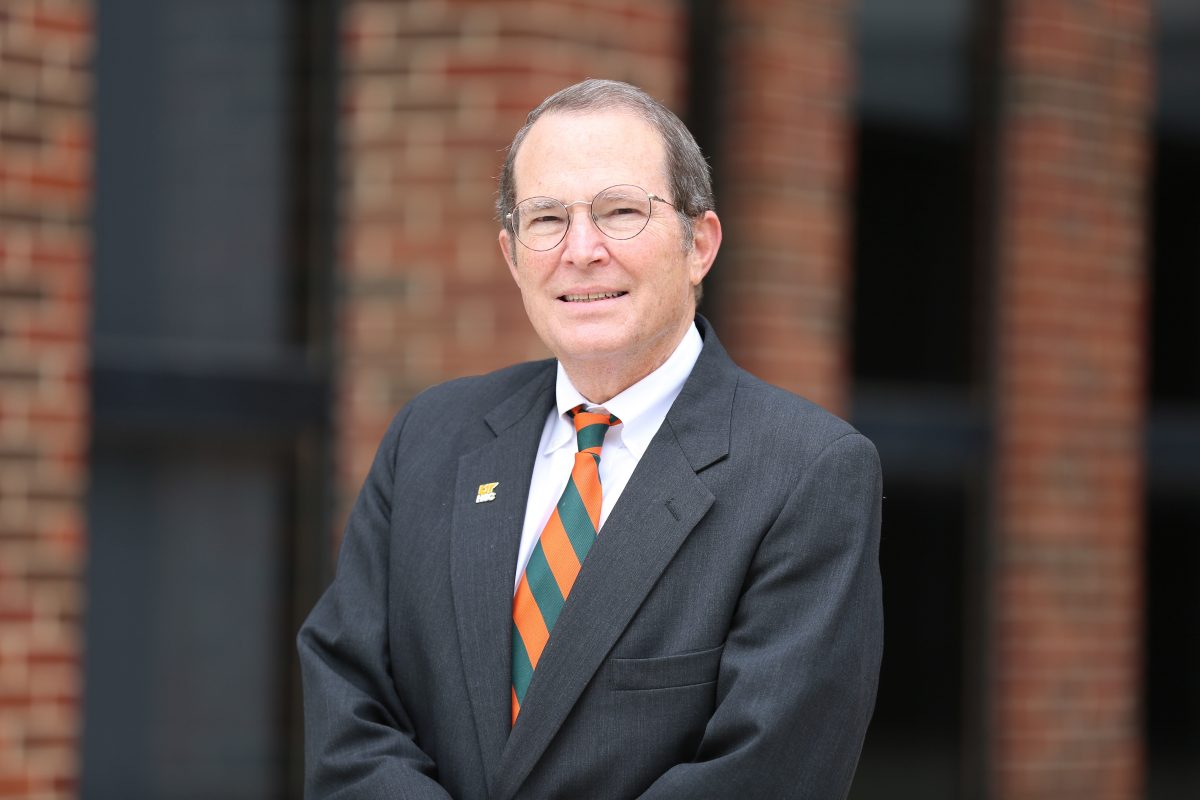University of Tennessee Health Science Center (UTHSC) Chancellor Steve Schwab will retire and the UT System will begin a search for his replacement. Schwab will continue to serve as chancellor until June 30, 2022, or until a successor is on board.
Schwab has been with the UT Health Science Center for 15 years, serving chancellor since 2010. Prior to that, he served as executive dean for the UT Health Science Center’s College of Medicine.
Schwab is a graduate of the University of Missouri School of Medicine and completed his internship/residency in internal medicine at the University of Kansas Hospitals and Clinics, followed by a fellowship in nephrology with Washington University at the Barnes Hospital. He spent 18 years on the faculty at Duke University, where he rose to become professor and vice chair of the Department of Medicine. In 2003, he was named Regents Professor and chair of the Department of Medicine at the Medical College of Georgia, and was later named chief clinical officer.
Under Schwab’s leadership, UTHSC:
- Expanded clinical partnerships across the state, creating an integrated statewide UTHSC organization of four campuses (Memphis, Nashville, Chattanooga, Knoxville) with shared educational, clinical and research activities.
- Transformed the Memphis campus. Driven by the Campus Master Plan, led by Ken Brown, the executive vice chancellor, UTHSC has accomplished more than $300 million in construction. Among major additions to the campus are the Translational Science Research Building, the Center for Health Care Improvement and Patient Simulation, the renovated Historic Quadrangle at the heart of the campus, the ongoing construction on the Delta Dental Building, the Pharmacy Building and the Cancer Research Building.
- Moved the university toward top-quartile performance in academics, growing the education enterprise to more than 3,300 students and 1,400 residents and fellows, at the same time achieving graduation rates at approximately 95 percent and overall first-attempt board pass rates at 95 percent or higher.
- Raised the research enterprise. UTHSC has doubled its grant awards, with a projected total for awards of more than $120 million this academic year. At the same time, UTHSC has more than doubled sponsored program revenue (non-clinical, all-source grants and contracts) to more the $300 million annually.
- More than tripled its clinical enterprise with the development of faculty practice plans throughout the state, generating more than $300 million in clinical revenue.
- Stood as a health care leader in the state during the global pandemic.
Schwab was named a 2021 CEO of the Year by Memphis magazine and Inside Memphis Business magazine, one of seven distinguished leaders of health based institutions in Memphis. In an interview earlier this year, he said, “Education was hit hard by the pandemic. More than half of our training is usually clinical and done in clinics and hospitals. We maintained our clinical enterprise using PPE and had to adapt our educational programs to go full-speed in our partner hospitals.”
The Center also educates residents and fellows before they go into practice. “Those physicians and dentists stayed working full-time and they were on the front lines,” Schwab says. “We adapted to decrease our density, maintain everything we could do online, and do our laboratories, simulation, and clinical care face-to-face. We had a near-hospital-like experience, but with an educational flavor, and I think we’ve successfully adapted.”
Last year’s changes meant UTHSC needed a new set of guidelines on how to do research in a pandemic. Schwab said, “We had one of the 11 regional biocontainment labs in the United States and that lab literally went into 24-hour operation. We almost doubled our staff doing COVID-related research, usually collaborative projects with the Oak Ridge National Laboratory and major pharmaceutical manufacturers on either aspects of vaccine development or therapeutic interventions.”
The last year provided more than the usual learning experience for students. First- and second-year students, Schwab said, had “an opportunity to participate both in terms of diagnostic testing and in terms of administering vaccines. They’ve risen to the occasion in a major way — nursing students, doctoral nursing students, pharmacy students, and the dental and medical students.”
He says he was impressed by the way faculty, staff, and students stepped up and did what had to be done. Students had to learn additional things in a more difficult environment, the staff was tasked with sterilizing rooms every day, and the faculty worked longer hours teaching the same number of students, but in smaller groups to keep distance.
Schwab is particularly proud of one achievement in particular: “We graduated everyone on time last year, and we’re on track to graduate everyone on time this year.”
The UT System has hired Witt Keiffer to conduct a search for the next chancellor of UTHSC. The firm’s team will work in coordination with UT’s in-house executive recruiter and search committee representing faculty, staff, students and alumni.
